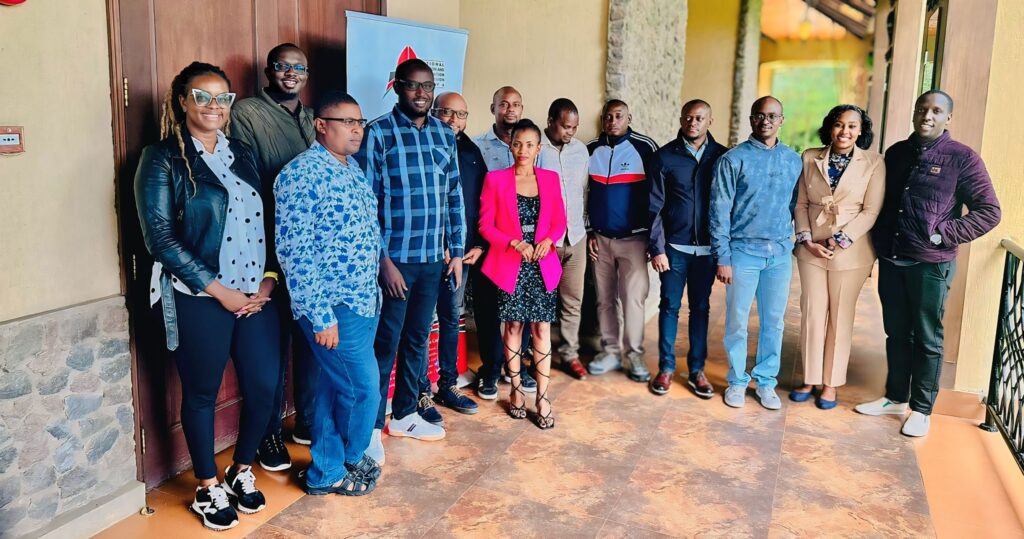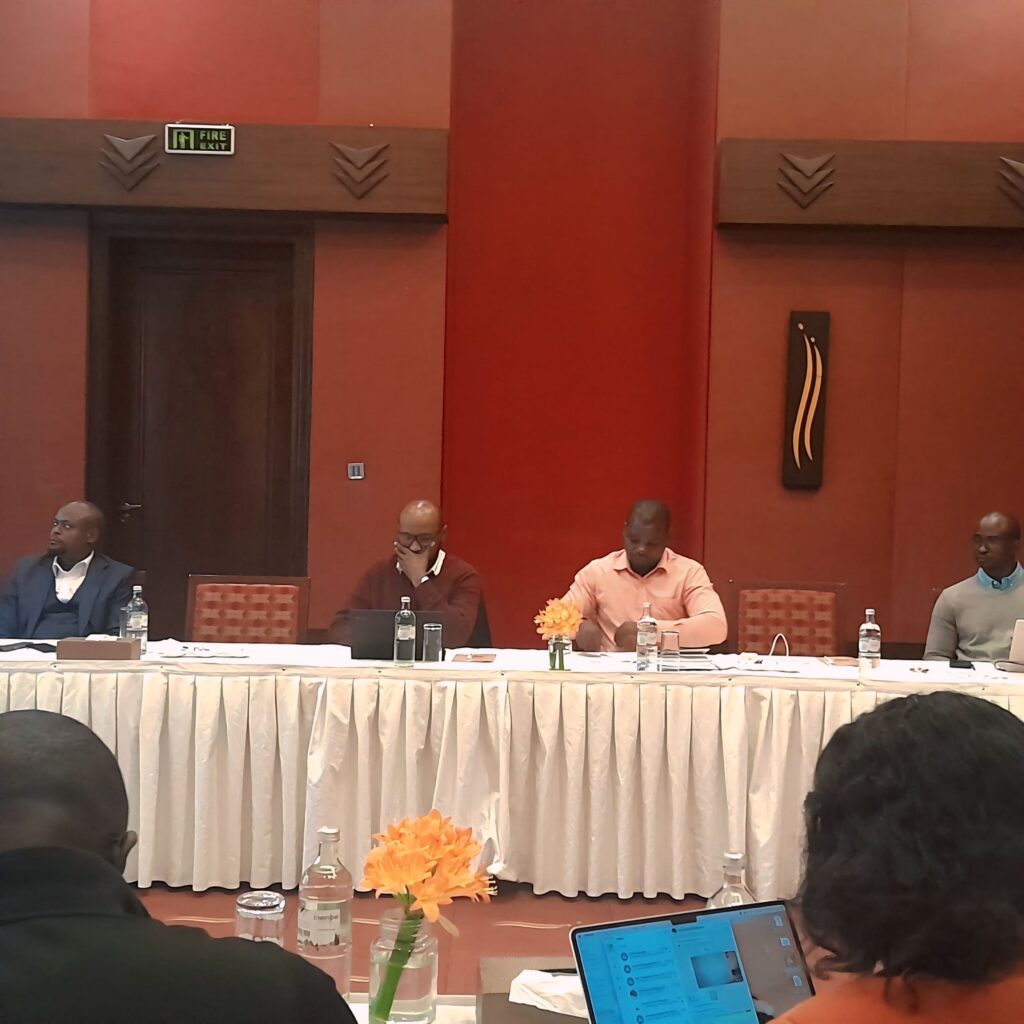On 12 March 2025, the National Cohesion and Integration Commission (NCIC) convened a one-day expert review session of the Draft National Guidelines on Disinformation and Hate Speech. The proposed guidelines aim to establish clear guiding principles for promoting online information integrity while upholding the constitutional freedoms guaranteed under Article 33 of Kenya’s 2010 Constitution, which provides for freedoms of speech and access to information.

This consultation brought together key stakeholders from the Communications Authority, Media Council of Kenya, Parliamentary Service Commission, Law Society of Kenya, Office of the Data Protection Commissioner, Internews, Article 19 Eastern Africa, and members of the National Coalition on Freedom of Expression and Content Moderation in Kenya. It followed preliminary consultations held in January 2025 in Naivasha, marking a significant step in the development of the guidelines.
“The development of these guidelines is a significant step as it will play a pivotal role towards curbing the harmful effects of misinformation, disinformation and hate speech on digital platforms in Kenya. This ongoing process reflects our shared commitment towards promoting online information integrity and protecting the rights of all Kenyans in the digital age.” Rev. Dr. Samuel Kobia, Chairman, National Cohesion and Integration Commission
Additionally, the NCIC is also reviewing the National Cohesion and Integration Act (2008) to ensure it is responsive to emerging challenges to national unity and social cohesion in the digital age. The review will lay the ground for the ultimate implementation of the new guidelines.
“The Communications Authority recognises the transformative power of digital technologies while also acknowledging the potential for misuse. These guidelines demonstrate a crucial step in establishing a framework that fosters innovation responsibly, ensuring a safer and more inclusive digital environment for all Kenyans.” David Mugonyi, EBS, Director General and Chief Executive Officer of the Communications Authority of Kenya
While technological advancements have expanded access to information and communication, they have also increased the spread and impact of harmful content.
“As we work towards an ‘internet of trust,’ digital platforms must respect human rights, promote transparency, and ensure accountability. This includes protecting fundamental freedoms of expression, access to information, and addressing harmful online content. UNESCO, therefore, hopes that this process will result in a code that strengthens information integrity and a healthy digital ecosystem in Kenya.” Misako Ito, UNESCO Regional Advisor for Communication and Information in Africa
The guidelines are grounded in several key principles, including:
- Respect for human rights and fundamental freedoms,
- Transparency and accountability by tech companies
- Continuous multistakeholder engagement and cooperation.
- User Empowerment on Media and Information Literacy,

“The responsibility of tech companies and social media providers to take the primary duty to proper action against harmful content cannot be gainsaid. Harmful content is a threat to young democracies like Kenya. Therefore, social media companies must be joined by civil society and MDAs to work together in a multipronged approach to conclusively deal with the menace, through deliberate content moderation, partnerships, and digital education.” Leo Mutisya, Manager, Media Council of Kenya
The guidelines will align with national and international legal frameworks, including Kenya’s Constitution, the Kenya Information and Communications Act, and global instruments like the Universal Declaration of Human Rights (UDHR). It also complements the ongoing implementation of UNESCO’s Guidelines for the Governance of Digital Platforms, which promote information integrity and safeguard human rights online.
“We call for a human rights-centered approach in tackling disinformation and hate speech in Kenya that protects citizens’ freedom of expression online. This can be achieved through a multi-stakeholder model in policy and legislative processes, ensuring a robust business and human rights to guide companies on respect for human rights in their content moderation processes and digital literacy media training. ARTICLE 19 Eastern Africa is grateful for the opportunity to participate in this process and will continue to give technical expertise on balancing freedom of expression while addressing potentially harmful content online.” Mugambi Kiai, Regional Director, ARTICLE 19 Eastern Africa
Kenya is taking decisive steps to address the growing challenges of disinformation and hate speech on digital platforms – issues that continue to threaten social cohesion, undermine democratic processes, and fuel distrust and conflict. The development of national guidelines aimed at promoting online information integrity, advocating for the responsible use of digital platforms, and safeguarding fundamental rights and freedoms represents a significant and commendable milestone in this effort.
This process is supported by UNESCO’s EU-funded Social Media 4 Peace initiative, which aims to strengthen the resilience of societies to harmful content online, particularly hate speech inciting violence, while protecting freedom of expression and promoting peace through digital technologies.
 Afrikaans
Afrikaans Shqip
Shqip አማርኛ
አማርኛ العربية
العربية Հայերեն
Հայերեն Azərbaycan dili
Azərbaycan dili Euskara
Euskara Беларуская мова
Беларуская мова বাংলা
বাংলা Bosanski
Bosanski Български
Български Català
Català Cebuano
Cebuano Chichewa
Chichewa 简体中文
简体中文 繁體中文
繁體中文 Corsu
Corsu Hrvatski
Hrvatski Čeština
Čeština Dansk
Dansk Nederlands
Nederlands English
English Esperanto
Esperanto Eesti
Eesti Filipino
Filipino Suomi
Suomi Français
Français Frysk
Frysk Galego
Galego ქართული
ქართული Deutsch
Deutsch Ελληνικά
Ελληνικά ગુજરાતી
ગુજરાતી Kreyol ayisyen
Kreyol ayisyen Harshen Hausa
Harshen Hausa Ōlelo Hawaiʻi
Ōlelo Hawaiʻi עִבְרִית
עִבְרִית हिन्दी
हिन्दी Hmong
Hmong Magyar
Magyar Íslenska
Íslenska Igbo
Igbo Bahasa Indonesia
Bahasa Indonesia Gaeilge
Gaeilge Italiano
Italiano 日本語
日本語 Basa Jawa
Basa Jawa ಕನ್ನಡ
ಕನ್ನಡ Қазақ тілі
Қазақ тілі ភាសាខ្មែរ
ភាសាខ្មែរ 한국어
한국어 كوردی
كوردی Кыргызча
Кыргызча ພາສາລາວ
ພາສາລາວ Latin
Latin Latviešu valoda
Latviešu valoda Lietuvių kalba
Lietuvių kalba Lëtzebuergesch
Lëtzebuergesch Македонски јазик
Македонски јазик Malagasy
Malagasy Bahasa Melayu
Bahasa Melayu മലയാളം
മലയാളം Maltese
Maltese Te Reo Māori
Te Reo Māori मराठी
मराठी Монгол
Монгол ဗမာစာ
ဗမာစာ नेपाली
नेपाली Norsk bokmål
Norsk bokmål پښتو
پښتو فارسی
فارسی Polski
Polski Português
Português ਪੰਜਾਬੀ
ਪੰਜਾਬੀ Română
Română Русский
Русский Samoan
Samoan Gàidhlig
Gàidhlig Српски језик
Српски језик Sesotho
Sesotho Shona
Shona سنڌي
سنڌي සිංහල
සිංහල Slovenčina
Slovenčina Slovenščina
Slovenščina Afsoomaali
Afsoomaali Español
Español Basa Sunda
Basa Sunda Kiswahili
Kiswahili Svenska
Svenska Тоҷикӣ
Тоҷикӣ தமிழ்
தமிழ் తెలుగు
తెలుగు ไทย
ไทย Türkçe
Türkçe Українська
Українська اردو
اردو O‘zbekcha
O‘zbekcha Tiếng Việt
Tiếng Việt Cymraeg
Cymraeg isiXhosa
isiXhosa יידיש
יידיש Yorùbá
Yorùbá Zulu
Zulu


